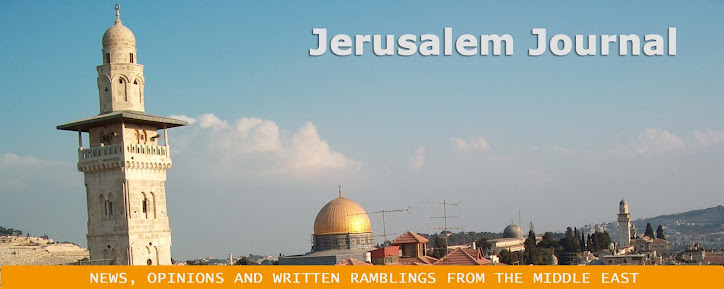Doctors are calling the continual improvement of Amiel Ortiz’ condition miraculous after the 15-year-old Messianic Jew was nearly killed in a bomb blast at his home in the settlement of Ariel.
“They’re using the word ‘miracle’ a lot,” David Ortiz, Amiel’s father, told Israel Today.
Amiel was critically wounded when he opened a basket delivered to his home during Purim. Since neighbors traditionally exchange baskets of treats on the holiday, he thought nothing of it. But when he pulled candy out of the box, a pipe bomb hidden inside exploded in his face. Officials told David Ortiz that it was most likely the work of ultra-Orthodox Jews.
“[The police] knew right away it wasn’t a Palestinian bomb,” David said. “Palestinians use [primitive] bombs, this was professional.”
Police are tight-lipped about the investigation. The blast was so powerful that it blew out all the windows in the apartment, sent shrapnel flying into the walls and through the refrigerator. The table where Amiel stood was obliterated. Authorities were shocked that Amiel’s hands weren’t blown off.
David Ortiz is a pastor of a Messianic congregation in Ariel, a Jewish town of 17,000 in Samaria (the so-called “West Bank”). Ortiz is openly evangelistic among both Jews and Palestinians. In fact, the Grand Mufti (Moslem spiritual leader) of Jerusalem issued a fatwa (death sentence) on Ortiz for his work among Moslems.
An American who immigrated to Israel with his wife Leah 23 years ago, Ortiz and all of his five older children have served in the Israeli army. Ami is the couple’s youngest son.
He has had two toes amputated and a few skin grafts. But several early assessments including loss of a lung and an eye have been rescinded as doctors note his miraculous improvement.
“The doctor said he feels Amiel will make a full recovery,” Ortiz said. “The doctor told me, ‘I feel you son is going to walk out of this place.’”
Ortiz asked believers to pray for Amiel’s emotional healing as well: “Pray that God will give him the power to forgive.”
Mar 13, 2008
The ‘Messiah’ is Coming Again, this time in Hebrew
One of the world’s most popular oratorios, Handel’s Messiah, is going to be performed in Jerusalem in the Bible’s original language—Hebrew—for the first time. It is the brainchild of Messianic Jewish believers who were born in Israel and who, like many Israelis, grew up with a deep connection to the Hebrew Bible.
“Three years ago I saw the Messiah performed by the Jerusalem Symphony Orchestra,” recalled Efrat Gerlich, a sixth generation sabra (native-born Israeli). “I thought, ‘Wow, this is something we must do in Hebrew.’”
Ammikam Tavor, a translator and teacher, had been thinking the same since 1964. “When I heard this musical for the first time I was just infatuated with it,” he told Israel Today. “Some of the music demanded to be translated.”
But it wasn’t until two years ago that Irene Levy, a tireless 87-year-old Christian resident of Jerusalem, asked Tavor to officially translate the music so it could be performed in Hebrew, a lifelong vision of hers. “Most of the translation was already in my mind, but to sit down and do it systematically, I didn’t do until this year,” Tavor said.
It took him a month to hammer out his first official version—about the same amount of time it took George Frideric Handel to compose the classic. Tavor took the words from the Hebrew Bible. “I tried not to make any changes from the Hebrew Bible unless it was absolutely impossible not to [musically],” he said, although he allowed himself more leeway with the New Testament, which was translated from Greek.
Translation in hand, the visionaries needed a conductor and a choir. Arie Bar David, a classically trained musician, conductor and pioneer of Israeli Messianic music, was asked by Levy numerous times over the years to take on such a feat, but he had repeatedly refused. “As a musician it frightened me. I know how important language is to the composer,” he said. “I thought, ‘Impossible! I will have to ruin the Hebrew, or the music or the Bible!’”
But a veiled “threat” from Levy finally got Bar David moving: “She told me, ‘In three years I will be 90 years old. Before I pass to the Lord, I want to hear it in Hebrew!’”
The first translation had to be adapted to fit the music. Tavor and Bar David smoothed the Hebrew words into the English-written music, while the team suggested solutions for problem parts. The most difficult piece, they said, was the Hallelujah chorus despite the fact that “hallelujah” is a Hebrew word.
One of Bar David’s first tasks—while he was still working fulltime as a tour guide—was to transliterate the Hebrew into Latin letters so it would read from left to right with the music.
“What was amazing, as I started working with the text, is that it was so easy to adapt,” he said. “And when we sing it as a choir, all the singers say they feel as if it was originally written in Hebrew.”
Bar David, Gerlich, Levy and Tavor amassed a 45-voice choir and secured two performances in the capital.
Despite its references to Yeshua, the Messiah is extremely popular in Israel as a classical work. Gerlich hopes that its message will be even sharper in Hebrew.
“It can touch the hearts of many people in Israel especially because it is already in our Bible,” Gerlich said. ”Now when they hear the New Covenant in Hebrew, they will say, ‘Maybe we have to check this out, maybe we have to read about it.’ They will have to search.”
The performances will be during Passover, a fitting tribute, Bar David said, to Yeshua’s resurrection. “Messiah is about the life of Yeshua,” he said, “from the beginning, to His death, to His resurrection, to His reign.”
Subscribe to:
Posts (Atom)


